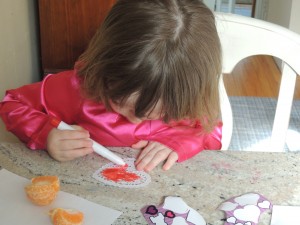(For more information about Amy Julia, and for links to books and articles, go to www.amyjuliabecker.com)
I have always loved writing. From my early years writing poetry as a kid in a small town in North Carolina, to expressing adolescent angst in the form of short stories in boarding school, to thirty-page essays as an English major in college, reading and writing have always been a part of who I am.
But it took a long time for me to think of writing as something I could do “for a living.” A calling. A vocation. Something that would not only bless me, but also bless other people. And then my mother-in-law was diagnosed with cancer, and eventually I wrote a book about that experience. And from the book came a blog and from the blog came some articles and thoughts about another book and invitations to write some more.
I’ve wondered in the past if there is a thread that connects all the different topics I write about. Even to me, they sometimes seem unrelated: hope, grief, cancer, disability, theology, child-raising, education, Jesus, family. But what I have come to understand is that I am writing about what it means to be human. Moreover, I am writing about human perfection.
I used to think that human perfection meant human exceptionalism. Being more than capable. Being able to do everything—athletics, academics, parenting, career—without help. Through the experience of caring for my mother-in-law as she battled cancer, and through the experience of welcoming my daughter into this world after she was born and after she was diagnosed with Down syndrome, I realized that my understanding of what it means to be fully human was flawed.
I am a Christian, and as a result, my understanding of humanity is rooted in a Biblical notion of being created by God, and being created “in the image of God.” Jesus teaches that we should “be perfect” as our heavenly father is perfect, but the word translated “perfect” is actually the Greek word telos. Telos is a word that means, “that for which you were intended.” The telos of a chair is to provide a place for sitting down. The telos of a building is to provide shelter. The telos of human life is to discover who we are in God’s image. When Jesus says, “be perfect,” he could just as well have been saying, “Be who you were created to be.” I have come to believe that human perfection is not about independence and getting everything right, but rather about vulnerability, interdependence, and admitting our need for one another. I have come to believe that human perfection is about giving and receiving, and recognizing one another as gifts.
And when we come to recognize one another as gifts—when the dividing lines of secular/religious, liberal/conservative, evangelical/mainline, gay/straight, disabled/able-bodied, rich/poor, black/white, are bridged—we get a glimpse of the kingdom of God among us. These moments and spaces, these points of connections, are “thin” places. The title of my blog, “Thin Places,” comes from a Celtic Christian idea that there are physical spaces where heaven and earth touch, where God seems more readily present, more easily accessed. In books and articles and on my blog, I try to write about Thin Places—ideas, relationships, points of connection, moments with beauty and truth that draw us towards one another, and towards the Holy One.



